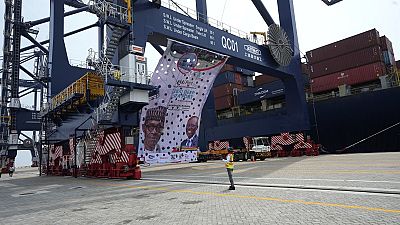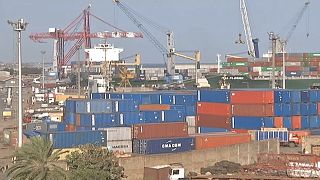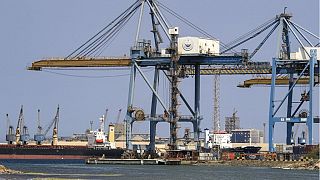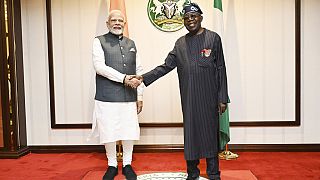Nigeria
The Lekki Deep Sea Port was officially inaugurated Monday (Jan. 23) by Nigerian President Muhammadu Buhari.
It will start to operate with the first commercial vessel arriving Sunday (Jan.29). The Lagos governor said ships docking at the port "could be up to four times the size of vessels that currently berth at both Tin Can and Apapa ports," the other two ports in Lagos.
The opening of a $1.5 billion, Chinese-funded deep seaport in the commercial hub of Lagos is a source of hope for local authorities that wish for the infrastructure to help grow the West African nation's ailing economy.
The Lekki Deep Sea Port is one of the biggest in West Africa and will create hundreds of thousands of jobs in addition to easing cargo congestion that costs billions of dollars in annual revenue, Lagos Gov. Babajide Sanwo-Olu said Monday.
The port's container terminal is able to handle at least 2.5 million 20-foot standard containers per year. It will be operated as a joint venture between the Nigerian government, Lagos state, Singapore-based Tolaram Group and state-owned China Harbor Engineering Company.
Divert traffic from congested ports
Authorities say the new deep seaport on the eastern edge of Lagos would divert traffic from congested ports and shore up earnings, with expected economic benefits of more than $360 billion.
Experts, however, argue it would make a "minimal difference" if existing pitfalls are not removed, including ensuring connections between ports and inland areas.
The project would drive economic development not just for Lagos but for the entire country, according to Cui Jianchun, Chinese ambassador to Nigeria.
"This is (the) engine of the economy not only for (the) governor of Lagos but also for the Federal Republic of Nigeria," Jianchun said. "This is equity of investment. This is not a loan, this is not borrowing — this is investment."
Agriculture and trade are key drivers of Nigeria’s economy, but widespread insecurity in the agricultural-rich north, dwindling foreign direct investments and endemic corruption have slowed economic growth amid reduced earnings from crude oil.
The government has turned to international lenders and funders to help grow the economy through critical projects, among them China, whose footprint are on some of Nigeria’s most important infrastructure such as rail networks and airport terminals.













01:10
Spain’s left-wing government stands out on migration policy in the EU
Go to video
Ghana overtakes Nigeria in U.S. visa overstay rates, new report reveals
01:11
Climate crisis takes centre stage at G20 summit in Brazil
01:00
Chidimma Adetshina crowned Miss Universe Africa and Oceania
01:26
Zimbabwe’s Climate-Smart Agriculture: Empowering Farmers through Resilience and Innovation
08:00
Exploring Algeria's maritime potential: How key ports like Annaba and Djen Djen drive growth